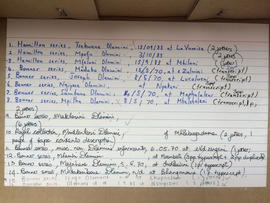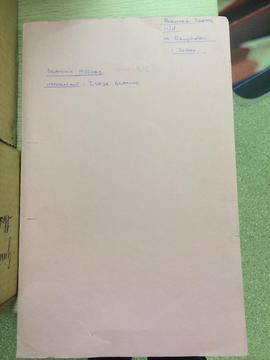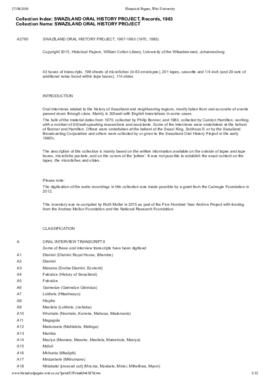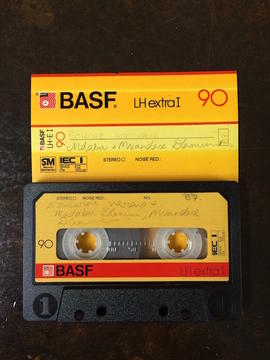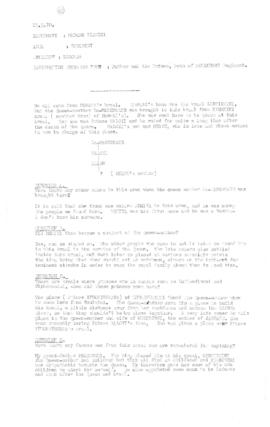- Selection
- 2016 -
[Source - Chloe Rushovich for FHYA using Wits materials, 2017: The inventory of Swaziland Oral History Project material at the Wits Historical Papers was re-compiled by Ruth Muller in 2015 as part of the Five Hundred Year Archive Project, with funding from the Andrew Mellon Foundation and the National Research Foundation. In 2014 the Five Hundred Year Archive commissioned Patricia Liebetrau to undertake the digitization of a selection of the handwritten and typed transcripts from the recordings made by Isaac Dlamini for the Royal House of Dlamini, Dumisa Dlamini for the Swaziland Broadcasting Services, Philip Bonner, and Carolyn Hamilton. The transcripts selected were those for which a typed-up summary or typed edited typescript already existed. The rationale for this was that the typed version, unlike the handwritten versions could be subjected to optical character recognition and are thus searchable. The linked typed texts therefore act as a kind of index to the handwritten texts and the recorded audio. This selection of transcripts, as well as the already digitized audio, and associated materials such as collection boxes, index cards, folders, audio tape cassettes and case labels, and notebooks, formed the FHYA selection from the Swaziland Oral History Project at the Wits Historical Papers. The selection also includes the experimental edited typescripts made by Carolyn Hamilton and Ronette Engela in the late 1980s to early 1990s. The FHYA organized this material into ‘series’, with each series being named after the primary interviewer or interviewing body, of the work.]




